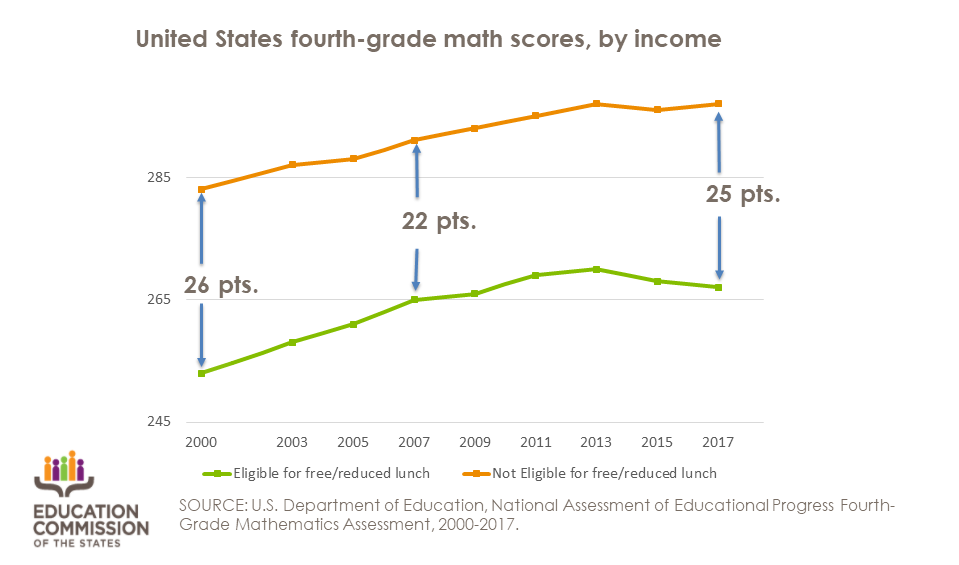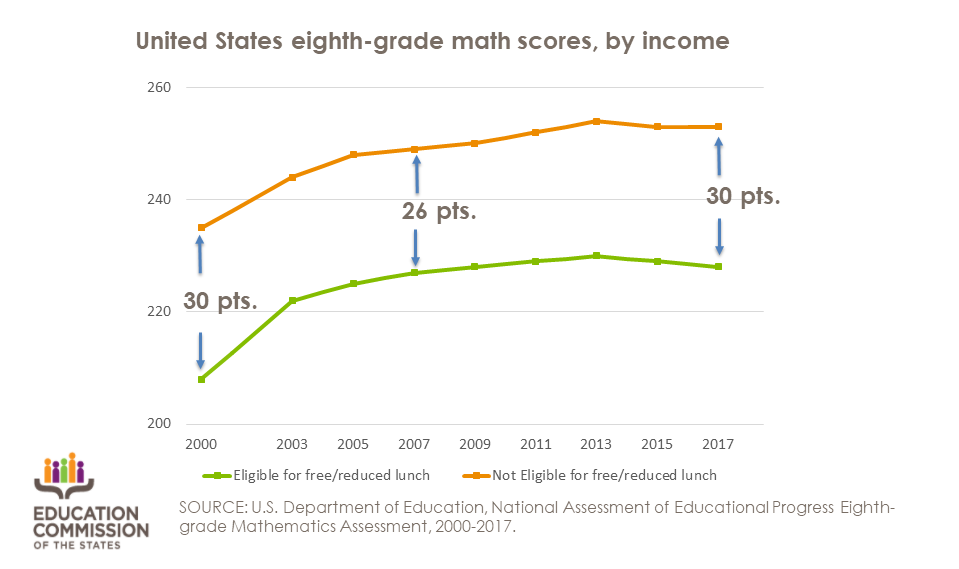New 2017 math and reading results from the Nation’s Report Card have put the education policy world in a mostly gloomy mood. This latest year of data confirms that the steady gains that marked the 1990s and early 2000s leveled off about 10 years ago. (Explore your state’s results on our Vital Signs website.)
A closer look at the math results reveals equally troubling news about equity in education. For years, the performance gaps narrowed, albeit slowly, between students who received free or subsidized lunches and those who did not. Since 2007, those gaps have widened again.
Here’s what has happened in fourth-grade math:

The income gap narrowed by a statistically significant four points between 2000 and 2007, only to widen again by roughly the same amount by 2017.
Scores in eighth grade tell a similar story:

Again, the gap narrowed by a statistically significant margin between 2000 and 2007, only to return to its former size by 2017.
Much of the backsliding occurred after 2013. In both fourth and eighth grades, scores of higher-income students were essentially flat, while those of low-income students fell by a statistically significant margin.
Giving up those gains is no small matter. The nation had made gradual progress toward the long-held goal of making our education system more equitable
Fortunately, there is a strong playbook for helping low-income students: Support teachers in low-income schools with excellent teaching materials and staff development. Invest in programs that show evidence of impact. Expand students’ access to after-school or summer school opportunities that can bolster their skills. Consider a longer school year.
We have made real progress before, and we can do it again.










